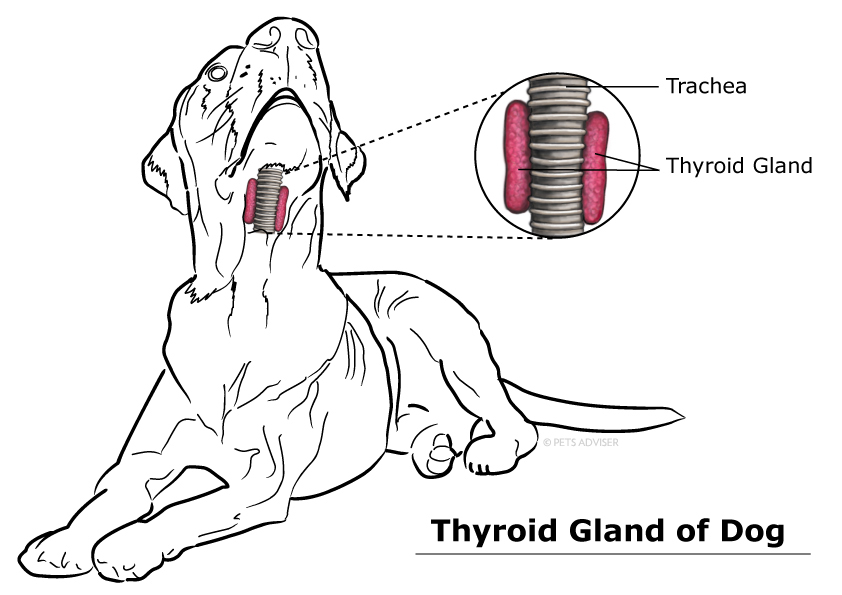The Connection Between Thyroid Dysfunction and Aggressive Behavior | Off Leash K9 Training
We handle aggression in dogs in Northern Virginia on a daily basis! Most people do not realize that it can also be medical related.
Thyroid glands regulate the body’s metabolism, any decrease in the thyroid’s work can cause various complications that are similar to other conditions.
Pet owners and dog breeders don’t know how to identify symptoms of initial canine thyroid disease. This can lead to owners and breeders misunderstanding, misdiagnosing, and mistreating any thyroid disorders with their canines. The genetic nature of thyroid disorders causes complications for dog breeds; having a correct diagnosis is very important for coming up with the remedies needed to treat canine thyroid disease.
The main reason for euthanizing dogs isn’t because of the disease, but because of the abnormal behavior that can come from it. Abnormal behavior has many reasons, but also reflects many psychological problems. The connection between behavioral/psychological changes and thyroid dysfunction in humans was first identified in humans in the 19th century.
The association between abnormal behavior and thyroid dysfunction in dogs (and in cats) was recently recognized. Typical symptoms include:
- Gratuitous aggression towards other animals and/or people
- Sudden onset of seizures
- Combination of disorientation, moodiness, and irregular temper
- Stretches of hyperactivity and hypo-attentiveness
- Depression, various phobias, anxiety, submissive/passive and compulsive behavior, and irritation
Most animals and humans that had these symptoms have been seen to be in a state of hypnosis and, when finished, were unaware of their behavior.
In fact, a study done by Drs Dodson and Denapoli, they tested 634 dogs, 62% of the aggressive dogs had low thyroids and 77% of seizing dogs had low thyroids. There is a significant relationship between low thyroid and human aggression in dogs. So, if you see this as a problem, it would not hurt to have a thyroid panel conducted on your dog. Once these were identified, 83/95 dogs showed very quick improvement with treatment.
Studies have seen the sudden change in behavior in dogs and young adults. Dogs that belong to a specific group of breeds (golden retriever, Rottweiler, Akitas, for example) are at risk various health complications such as allergies and any immune system dysfunction. In their case, symptoms include seasonal allergies and itching of their skin. These can be symptoms directly related to thyroid dysfunction.
Puppies and young dogs start out as well-mannered and outgoing before the sudden changes in their personality are seen through nonstop whining, sudden nervousness and phobias, abnormal sweating, and inattention. From there, it can become sudden, unprovoked aggression with other animals and people, or a case of seizures (as explained above). In terms of treatment, a study at Tufts University School of Veterinary Medicine has shown dogs response to thyroid replacement therapy. Their study showed positive reviews in the first week of treatment and a change in their past behavior.
The human-dog connection in personality and in health has been crucial for a long time and their relation to thyroid disorders and aggression being identified adds to the correlation. The physical and psychological complex is continuously being studied to improve on what can be done to cut down on the condition’s expansion affecting humans and dogs alike. This subject is more broad and complicated than on paper because of the wide variations of the condition; diagnosis and treatment is currently the goal to find.
If you are experiencing issues with your dog or aggression, contact us:

